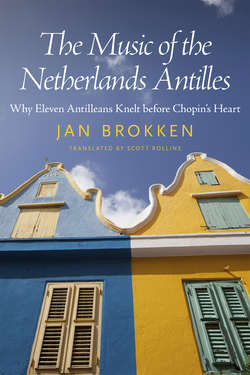Читать книгу The Music of the Netherlands Antilles - Jan Brokken - Страница 9
На сайте Литреса книга снята с продажи.
1 A Polish Prelude
ОглавлениеThe news made it into the Süddeutsche Zeitung, even if it were only in the back pages, as a miscellaneous item above the featured articles. It was printed with a frame around it to draw the reader’s attention to the bizarre nature of its content.
A Reuters correspondent had attended the mass held in the Church of the Holy Cross in Warsaw on the October 17, 1999, to commemorate the 150th anniversary of the death of Chopin. It had been a bitterly cold day and the invited guests, who filled the first seven rows, were not at all mournful about how briefly the service lasted: the church floor felt like a sheet of ice.
To be sure, Chopin is buried in Paris, at the Père-Lachaise cemetery, but in accordance with his last will and testament his heart was removed from his chest and brought back to Poland. The composer wanted to make it clear, once and for all and beyond his grave, that deep within he had always remained a Pole, even though he had left for Vienna and Paris as a nineteen-year-old, never to set foot again in his native land in protest of the Russian occupation. To make his exile complete, his body found its final resting place in French soil, under a handful of Polish earth that friends had given to him on the day of his departure from Warsaw. Chopin’s mortal remains would never leave Père-Lachaise again, apart from that one hollow muscle, the most symbolic of all the organs.
Behind the sincere patriotic sentiments expressed in his last will and testament there lurked another reason, more gruesome to the point of morbidity. Chopin suffered from the fear of being buried alive, a phobia he had adopted from his father. In his thirty-ninth year, gravely ill and paralyzed with pain, he sensed that death was approaching. A few weeks before his passing he had requested Doctor Cruveilhier to perform an autopsy on his body immediately after being declared dead, and to cut the heart out of his chest. To remove any doubt whatsoever about an apparent death he also had put in his will that the lid to the casket could only be closed once his body had been embalmed. This measure took up so much time the composer could only be buried thirteen days after his death.
His carefully preserved heart—which, according to the doctor, was even worse off than his lungs that were ravaged by tuberculosis—was indeed brought to Warsaw and placed in the Church of the Holy Cross, enclosed in an urn which would survive the church’s near total destruction almost a century later. In the final year of World War II bombs obliterated the chancel, nave, and a large part of the towers, but Chopin’s heart remained unscathed.
After the reconstruction of the church, the urn was given a prominent place, in a niche near the altar. It was there the Bishop of Warsaw celebrated the mass on October 17, 1999. Besides his being every bit a Pole, Chopin had remained a fervent Catholic, receiving the proper sort of commemoration: with prayers, incense, liturgical hymns, and the sounds of the organ.
Another ceremony that honored the composer in equal measure was held a week after the mass, some fifty kilometers to the west of Warsaw at Zelazowa Wola, the country estate where Fryderyk Franciszek had been born. Six pianists took turns performing every one of Chopin’s compositions for solo piano, in the house where his French father had given lessons to the children of Count Skarbek, and in the salon where Fryderyk had crawled across the floor, possibly even over to the piano. Candlelight recalled the atmosphere of those bygone days, and the listeners often found themselves looking outside, at the thick snowflakes falling on the paths and fields of the country estate, covering up the visible traces of this modern age, and at the farmhouse, diagonally behind the stately home, where Chopin’s crib had stood. The Reuters correspondent had also covered this commemorative concert.
“Despite the bitter cold, some six hundred admirers of the composer attended the mass in the Church of the Holy Cross,” he wrote. “After the sober ceremony some two hundred of those present undertook the pilgrimage to Zelazowa Wola, letting themselves be quietly transported in the company of Chopin’s spirit to quiet reverie of three days of round-robin performances by six pianists of his polonaises, nocturnes, waltzes, mazurkas, scherzos, and ballads. Naturally there were quite a few Poles among those present, a few Germans and French, and the three inescapable Americans who never miss a commemoration, no matter whose it may be. Furthermore, eleven Antilleans knelt before the urn with the heart, in the Church of the Holy Cross, the majority of whom came down with severe colds in Zelawowa Wola, since they did not want to miss a single concert. No one from the organizing committee could explain the presence of this substantial delegation from the Caribbean.”
I read the item in Munich, where it had been snowing just as heavily as in Poland, and felt the pangs of homesickness coming on. I still had to give a few more readings; then I packed my bags, returned to the Dutch Antilles and made the first notes for this book.
